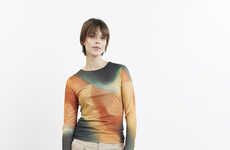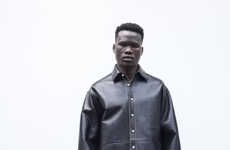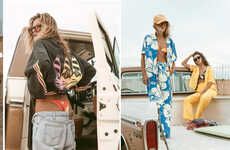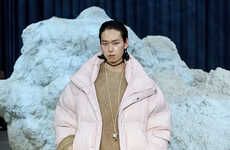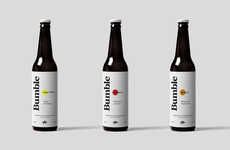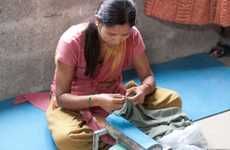
The Svilu Spring/Summer 2013 Looksbook Boasts Boyish Fashion
Amy Wallace — July 31, 2013 — Eco
References: svilu & procureddesign
Svilu is an emerging NYC-based women’s fashion label. The brand, founded in 2012 by Marina Polo and Britt Cosgrove, creates pieces for the environmentally conscious, showcasing a modern and casual look.
Svilu's clothing bears resemblance to men’s fashion; classic and traditional silhouettes are present in the collection. The clothing retains a feminine look, despite featuring pieces that are more often associated with men’s fashion (such as blazers and button-up shirts). The brand takes pride in being environmentally conscious; the brand’s clothes are locally produced, with all items manufactured in the USA. Sustainable fabrics used in production include modal, virgin wool, tencel and certified organic cotton. The label also uses digital fabric printing, which minimizes waste of fabric, ink, water or electricity.
Svilu’s Spring/Summer ’13 lookbook features preppy, nautical styles. The Fall/Winter ’13 lookbook focuses on dark hues, plaid and chunky knits.
Svilu's clothing bears resemblance to men’s fashion; classic and traditional silhouettes are present in the collection. The clothing retains a feminine look, despite featuring pieces that are more often associated with men’s fashion (such as blazers and button-up shirts). The brand takes pride in being environmentally conscious; the brand’s clothes are locally produced, with all items manufactured in the USA. Sustainable fabrics used in production include modal, virgin wool, tencel and certified organic cotton. The label also uses digital fabric printing, which minimizes waste of fabric, ink, water or electricity.
Svilu’s Spring/Summer ’13 lookbook features preppy, nautical styles. The Fall/Winter ’13 lookbook focuses on dark hues, plaid and chunky knits.
Trend Themes
1. Eco-friendly Fashion - Opportunity for brands to create clothing that is stylish and environmentally conscious.
2. Gender-bending Fashion - Potential for brands to blur the lines between men's and women's fashion, offering unique and versatile designs.
3. Sustainable Manufacturing - Increasing demand for locally produced and sustainably made clothing, presenting opportunities for brands to innovate in production methods.
Industry Implications
1. Fashion - The fashion industry can leverage eco-friendly practices and gender-neutral designs to stay ahead of evolving consumer preferences.
2. Textile - The textile industry can explore sustainable fabric alternatives and digital printing techniques to reduce waste and improve efficiency.
3. Manufacturing - Manufacturing companies can adapt their processes to support sustainable production methods, catering to the growing demand for environmentally friendly products.
4.1
Score
Popularity
Activity
Freshness














